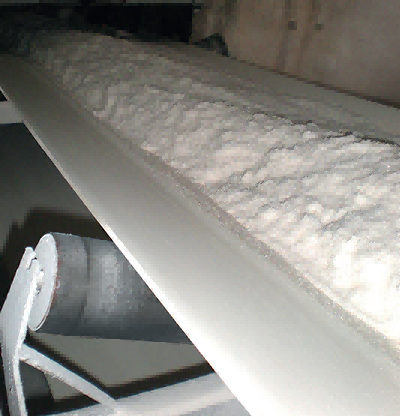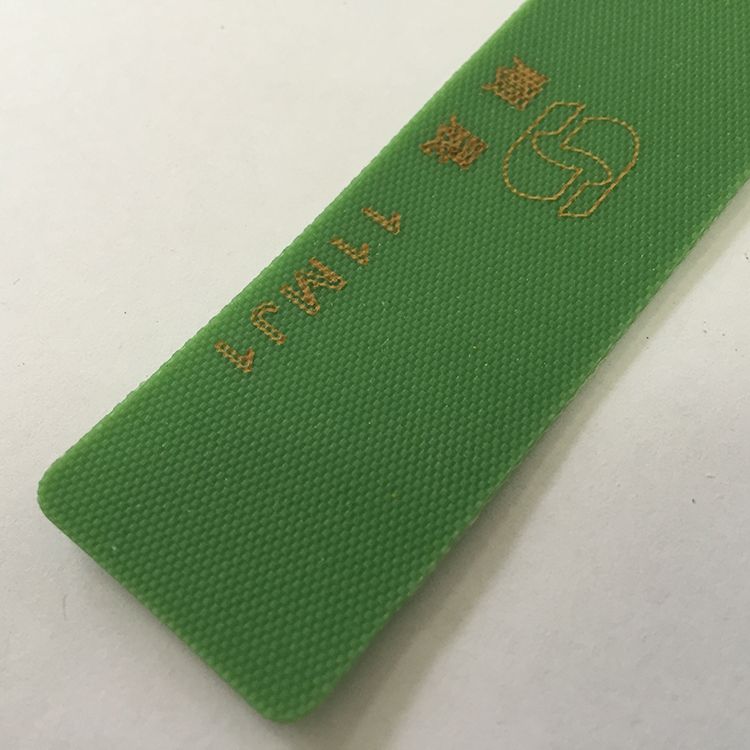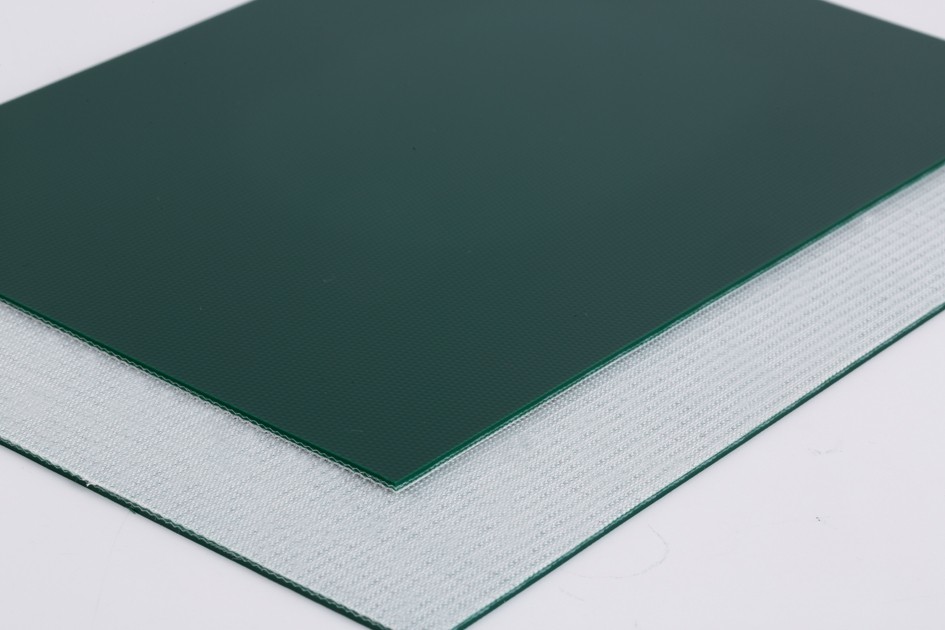Introduction
In the realm of industrial manufacturing, felt belts are a critical component used in various applications, ranging from textiles and papermaking to machinery and industrial processes. The quality and reliability of felt belts are paramount for seamless production and material handling. To ensure that these crucial components meet the highest standards, it’s essential to choose reputable felt belt suppliers who adhere to specific quality certifications and standards. In this article, we will explore the importance of these certifications and standards and the role they play in selecting a reputable felt belt supplier.

Understanding Felt Belts and Their Significance
Before delving into quality certifications and standards, it’s important to grasp the significance of felt belts in industrial applications. Felt belts are known for their versatile and unique characteristics, making them invaluable in various industries. Their applications include conveying, drying, sealing, and pressing, among others.
Felt belts are prized for their attributes, such as heat resistance, durability, and high absorption capacity. These properties make them suitable for a wide range of industrial processes. In textiles, felt belts are used for continuous drying and pressing of fabrics, while in papermaking, they serve to dewater and press paper pulp. In machinery and other applications, felt belts play a pivotal role in product manufacturing.
Given the diverse applications and critical roles of felt belts in different industries, it is imperative to ensure that the suppliers adhere to stringent quality certifications and standards to maintain the integrity and reliability of these components.
Quality Certifications and Standards in Manufacturing
In the manufacturing industry, quality certifications and standards are integral to ensuring that products meet defined criteria for quality, safety, and consistency. These certifications and standards provide a framework for companies to establish and maintain processes that guarantee reliable and safe products.
There are internationally recognized quality certifications and standards that felt belt suppliers should adhere to:
- ISO 9001 Certification
ISO 9001 is a globally accepted standard for quality management systems. It provides a comprehensive framework for organizations to ensure the consistency of their products or services, achieve customer satisfaction, and continuously improve their processes. For felt belt suppliers, ISO 9001 certification demonstrates a commitment to maintaining high product quality and consistently meeting customer requirements. Adherence to ISO 9001 standards is a fundamental requirement for reputable felt belt suppliers, as it ensures a systematic approach to quality management.
- Industry-Specific Standards
Various industries have their own specific quality standards and certifications. These industry-specific standards are designed to address the unique needs and requirements of sectors that utilize felt belts. For instance:
In textiles, standards may focus on the heat resistance and dimensional stability of felt belts, ensuring their suitability for continuous drying and pressing applications.
In papermaking, quality standards may emphasize the thickness uniformity and absorption capacity of felt belts to achieve efficient dewatering and pressing of paper pulp.
In machinery manufacturing, felt belts must meet specific requirements related to wear resistance, friction properties, and load-bearing capacity, depending on the machinery’s use.
Compliance with these industry-specific standards is essential for ensuring that felt belts are safe and reliable for their intended applications.
- Compliance with Regulatory Requirements
Beyond quality certifications and industry-specific standards, felt belt suppliers must also comply with regulatory requirements to ensure worker safety and address environmental considerations. Regulatory bodies may impose specific guidelines and standards that felt belts must meet to protect workers and the environment.
For example, in textile and machinery manufacturing, safety regulations may focus on fire-resistant properties of felt belts to prevent fire hazards. In the paper industry, environmental regulations may emphasize materials that are environmentally friendly and sustainable. Suppliers must proactively stay informed about and comply with relevant regulations to ensure their felt belts adhere to necessary safety and environmental standards.
Customer Audits and Quality Assurance
In addition to adhering to quality certifications and standards, felt belt suppliers often undergo customer audits to evaluate their commitment to quality and compliance. Customer audits are comprehensive assessments of supplier facilities, processes, and quality control measures, performed by customers or third-party auditors. These audits serve as a means for customers to ensure that suppliers meet established standards and deliver reliable products.
In response to customer audits, felt belt suppliers implement robust quality assurance practices. Quality assurance involves systematic approaches to maintain and enhance product quality. It encompasses testing, inspection processes, addressing non-conformities, and continuous improvement efforts. Quality assurance is an essential component of supplier operations, as it demonstrates the supplier’s dedication to delivering reliable and compliant felt belts.
Case Studies and Examples
To gain a deeper understanding of the real-world benefits of adhering to quality certifications and standards, let’s explore some case studies and examples of reputable felt belt suppliers.
- Case Study 1: Textile Industry
A textile manufacturing plant required high-quality felt belts for continuous drying and pressing of fabrics. They partnered with a felt belt supplier that adhered to ISO 9001 standards and met industry-specific requirements. The result was a significant improvement in fabric quality and production efficiency, leading to increased customer satisfaction and higher-quality textiles.
- Case Study 2: Papermaking
A paper mill needed felt belts for dewatering and pressing paper pulp. They chose a felt belt supplier that adhered to environmental regulations and industry-specific standards. The belts provided efficient dewatering and pressing, resulting in reduced energy consumption and environmental impact. The paper mill enhanced product quality and sustainability, making it more competitive in the market.
- Case Study 3: Machinery Manufacturing
A machinery manufacturer required felt belts for use in its production processes. They selected a supplier that complied with safety regulations and ISO 9001 standards. The use of these high-quality felt belts in machinery manufacturing led to reduced downtime, decreased wear and tear on equipment, and improved product quality.
Conclusion
In conclusion, the importance of quality certifications and standards for reputable felt belt suppliers cannot be overstated. The adherence to these certifications and standards is critical to ensure the consistency, reliability, and safety of felt belts in industrial applications.
Felt belts serve as vital components in various industries, enabling the efficient and effective production of textiles, paper products, and machinery. Suppliers that commit to ISO 9001 certification, industry-specific standards, regulatory compliance, customer audits, and quality assurance practices demonstrate their dedication to delivering reliable and safe products.
Choosing a reputable felt belt supplier that adheres to these certifications and standards is a strategic decision for industrial professionals. It not only guarantees high-quality products but also contributes to the efficiency and safety of industrial operations. Selecting the right supplier ensures that felt belts remain integral to the success of various industrial endeavors, delivering consistent and dependable results.





